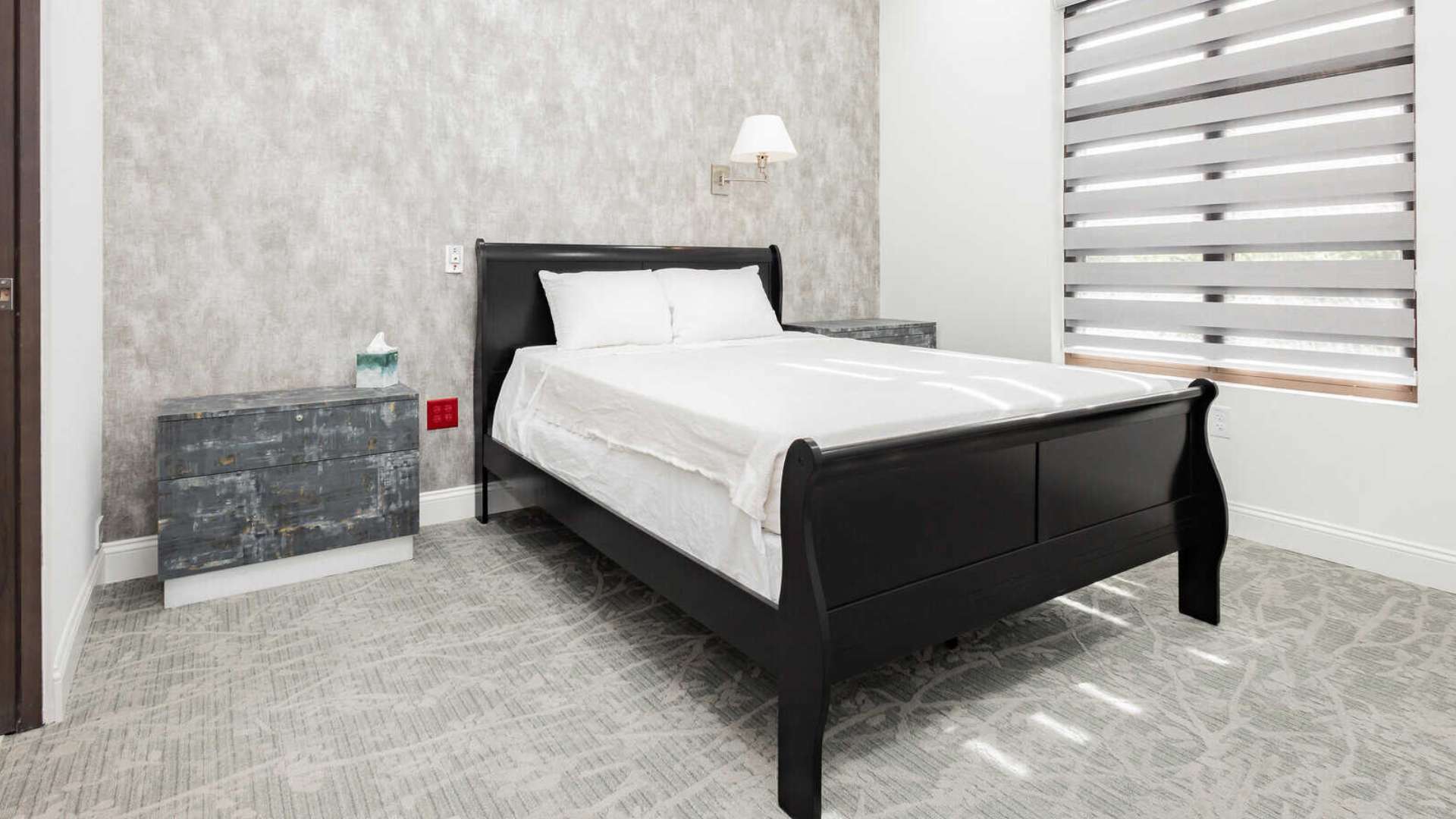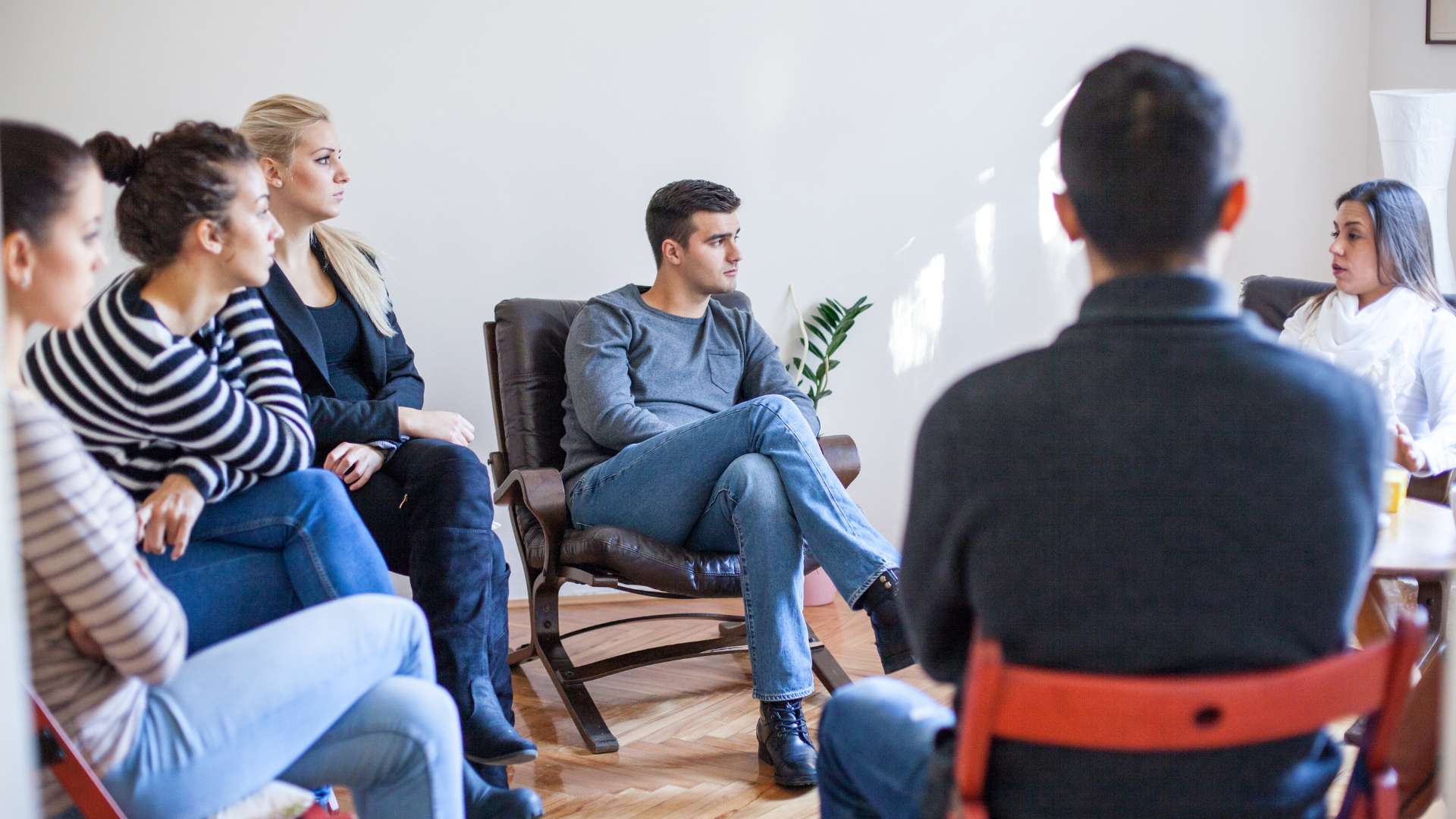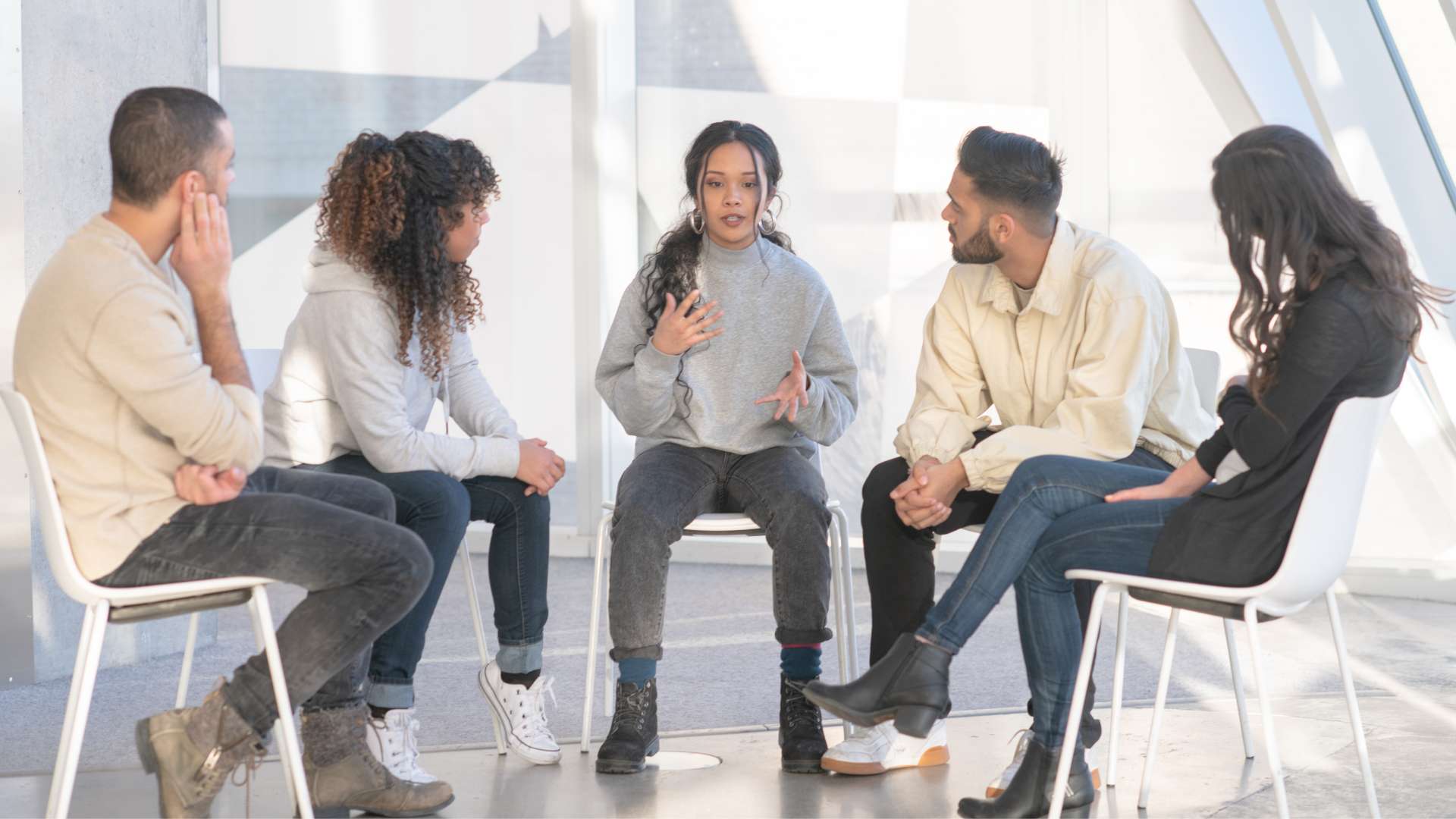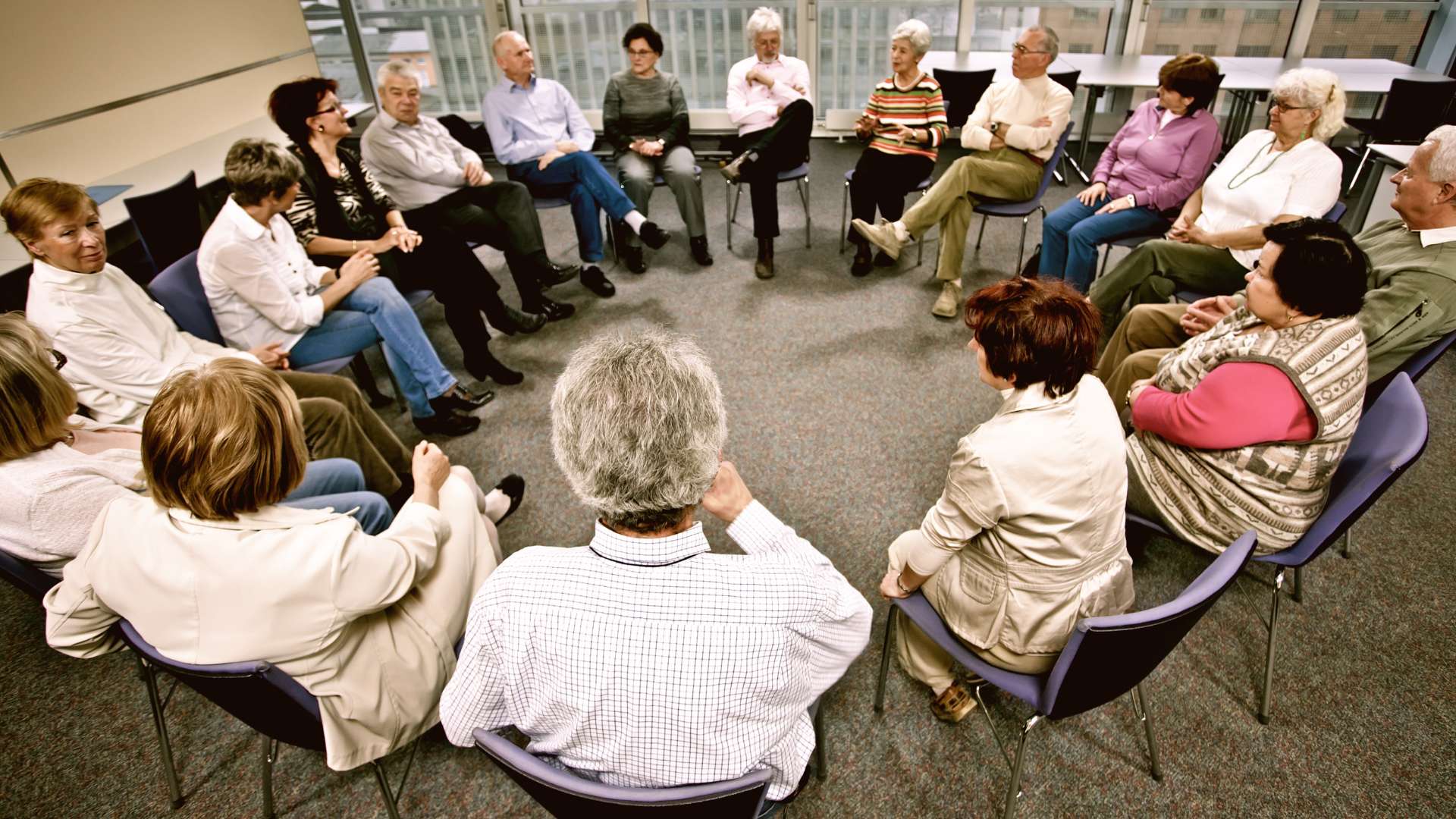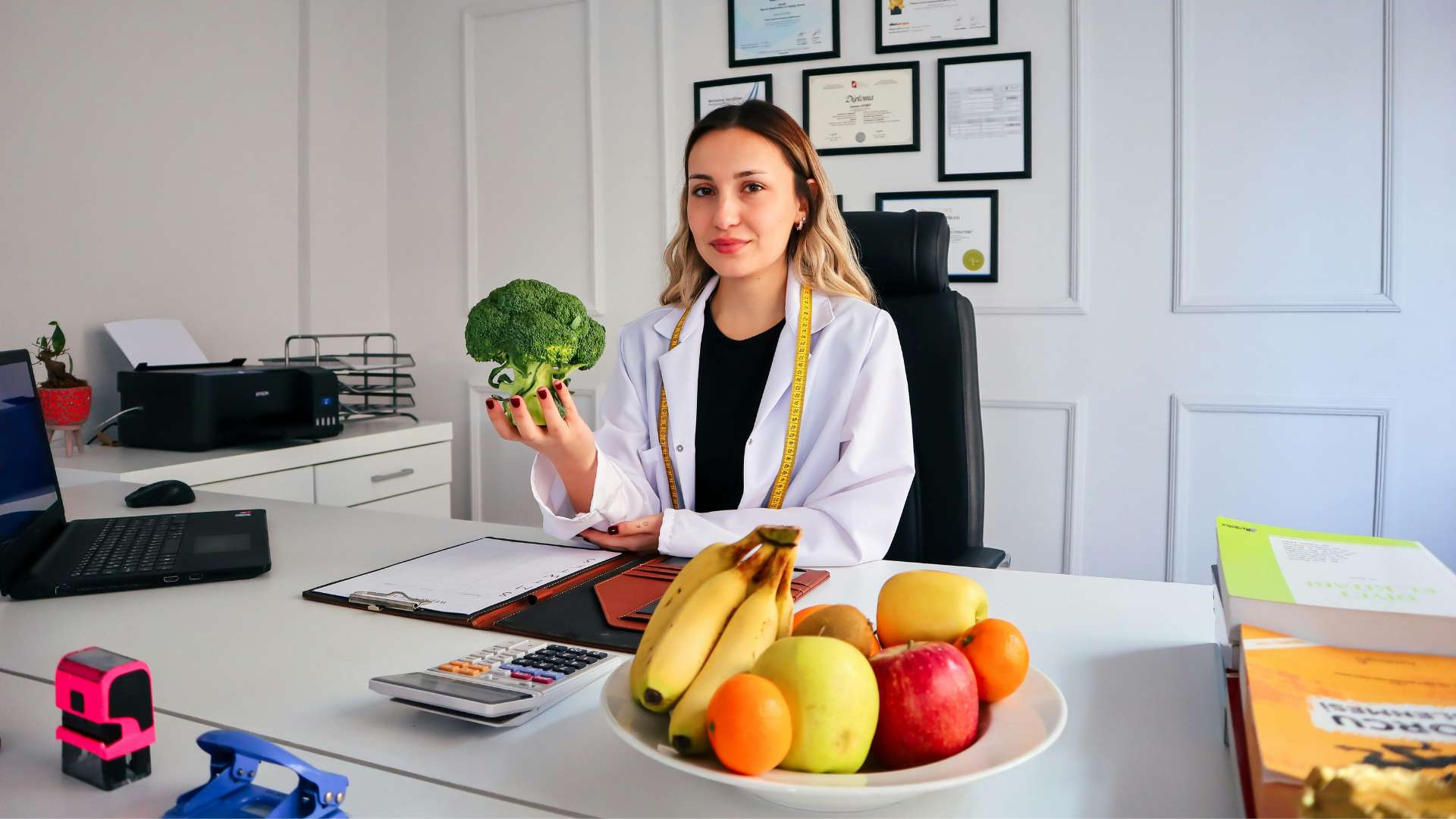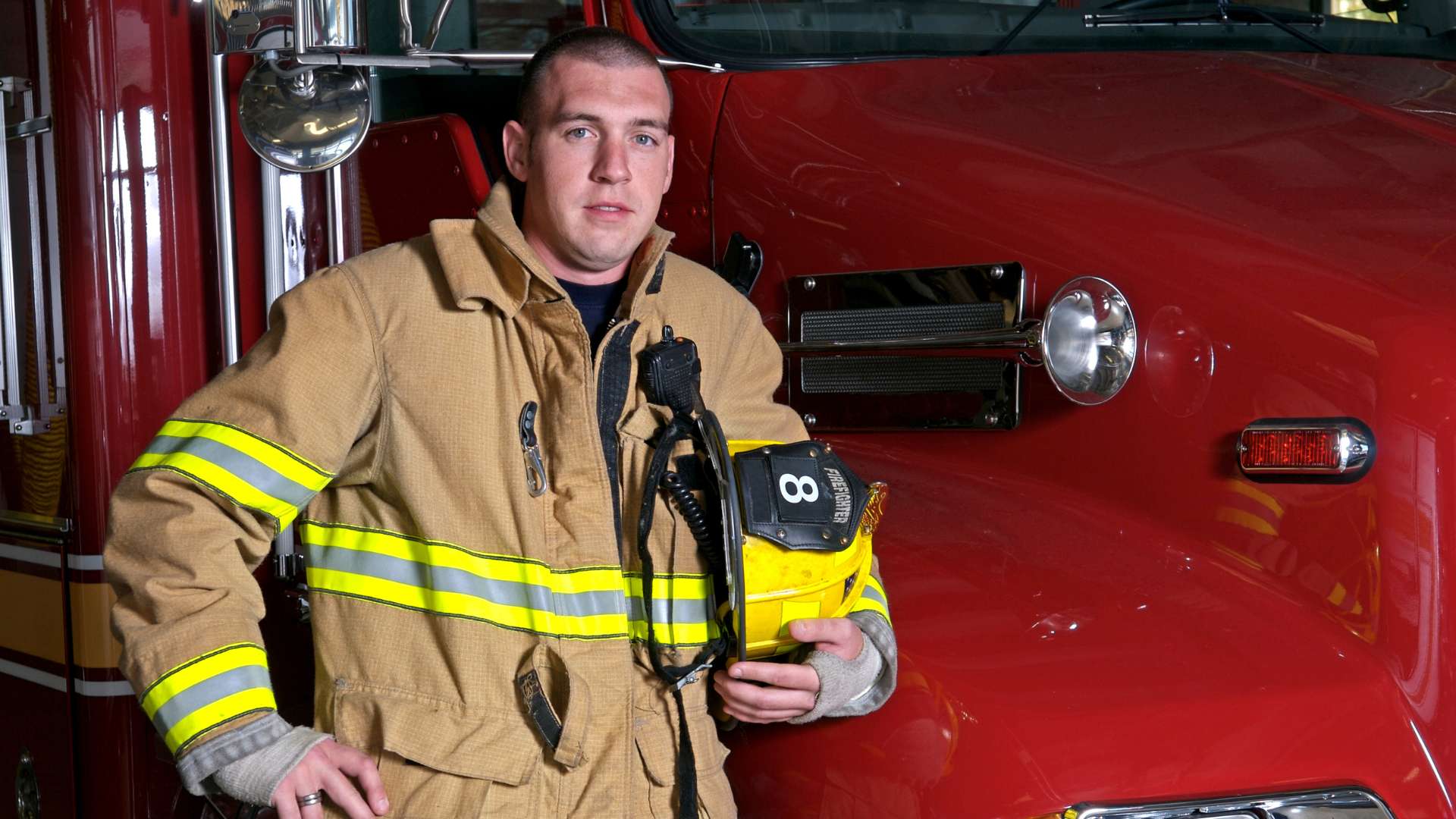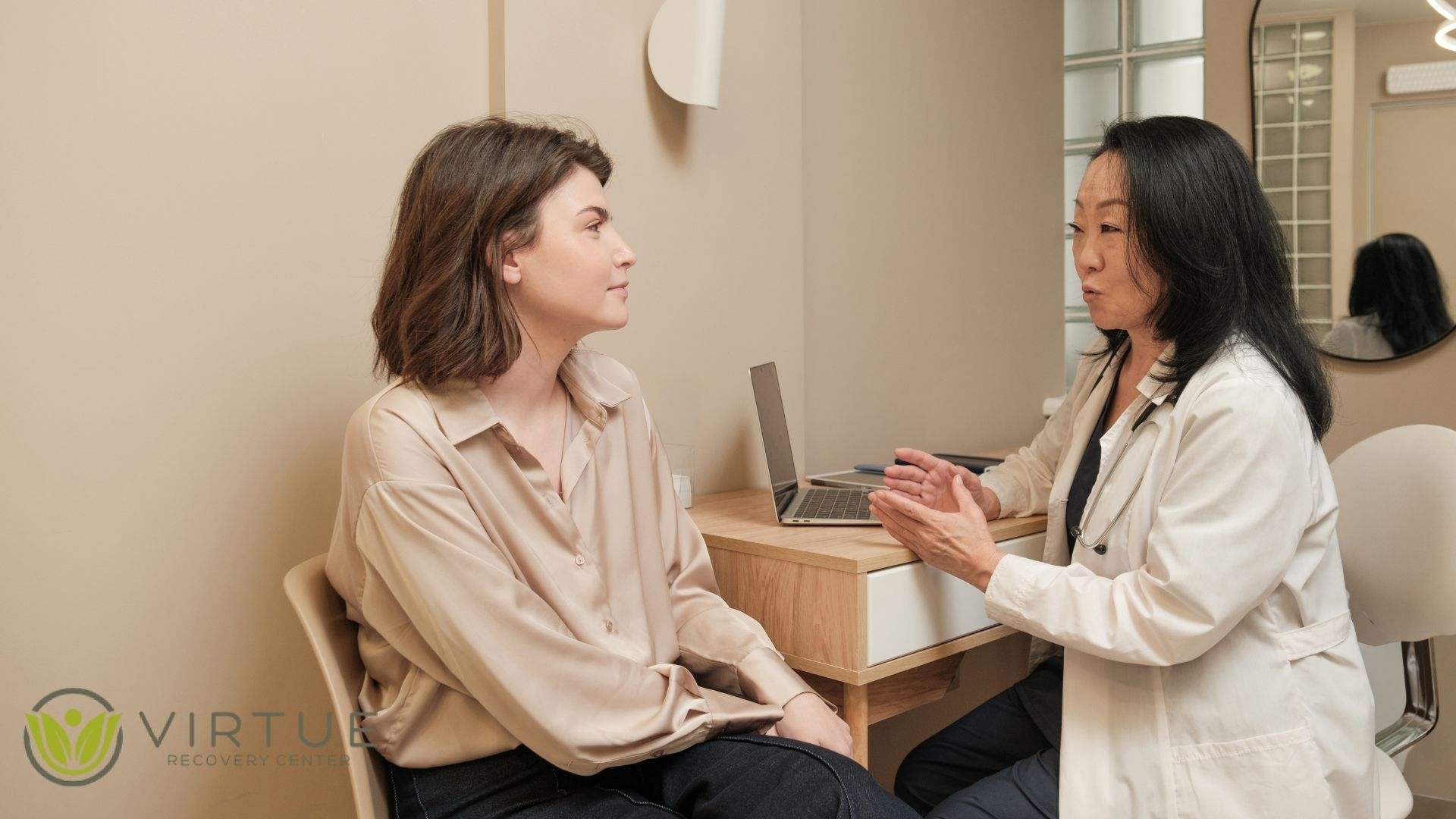 On the journey to recovery, a wide range of treatment programs and services can be beneficial. At different points, you’ll benefit from different approaches. In the early days of recovery, a medical detox program can provide 24/7 support, and residential treatment can provide a safe, structured environment for you to build a foundation for recovery. One approach that can be especially helpful as you transition back to everyday life is an outpatient treatment program.
On the journey to recovery, a wide range of treatment programs and services can be beneficial. At different points, you’ll benefit from different approaches. In the early days of recovery, a medical detox program can provide 24/7 support, and residential treatment can provide a safe, structured environment for you to build a foundation for recovery. One approach that can be especially helpful as you transition back to everyday life is an outpatient treatment program.
Outpatient treatment involves ongoing therapy and group sessions in a setting where you can live at home and take care of your daily obligations. At Virtue Recovery Las Vegas, our outpatient rehab program helps you develop the skills to stay sober and practice healthy habits. Through a combination of individual, group, and family therapy, we can help support you in a meaningful way.
Call 866.520.2861 today for more on the addiction treatment services from Virtue Recovery Las Vegas.
How Outpatient Rehab Supports Recovery
Outpatient treatment is often recommended after completing a medical detox or residential treatment program. Many people find outpatient programs to be incredibly valuable in early recovery because they offer ongoing support and accountability, along with the flexibility to take care of obligations at home.
Outpatient rehab helps clients develop life skills while reintegrating into everyday activities and relationships. This is important because, in the long run, living life will determine one’s success in recovery. Understanding one’s triggers for relapse, developing coping strategies, and regaining confidence are all part of the process.
At Virtue Recovery Las Vegas, we understand the importance of an effective outpatient program. Our qualified and experienced staff will help you regain control over your life and build a solid foundation for long-term success.
What is an Outpatient Addiction Treatment Program?
An outpatient addiction treatment program is a structured yet flexible approach to treating substance use disorders and co-occurring mental health conditions. Unlike inpatient or residential treatment programs, outpatient care allows individuals to live at home while attending therapy sessions, counseling, and support groups during scheduled times. This flexibility makes outpatient programs an excellent choice for those with family, work, or school responsibilities.
Outpatient addiction treatment includes various levels of care, such as traditional outpatient programs, Intensive Outpatient Programs (IOPs), and Partial Hospitalization Programs (PHPs). Each level provides tailored support to meet clients’ unique needs, focusing on recovery while maintaining daily routines.
The main goal of outpatient treatment is to help clients build the skills and resilience needed for long-term sobriety. Programs often include evidence-based therapies like Cognitive Behavioral Therapy (CBT), group counseling, and relapse prevention strategies. This type of treatment is ideal for individuals who have completed higher levels of care or those whose addiction is less severe.
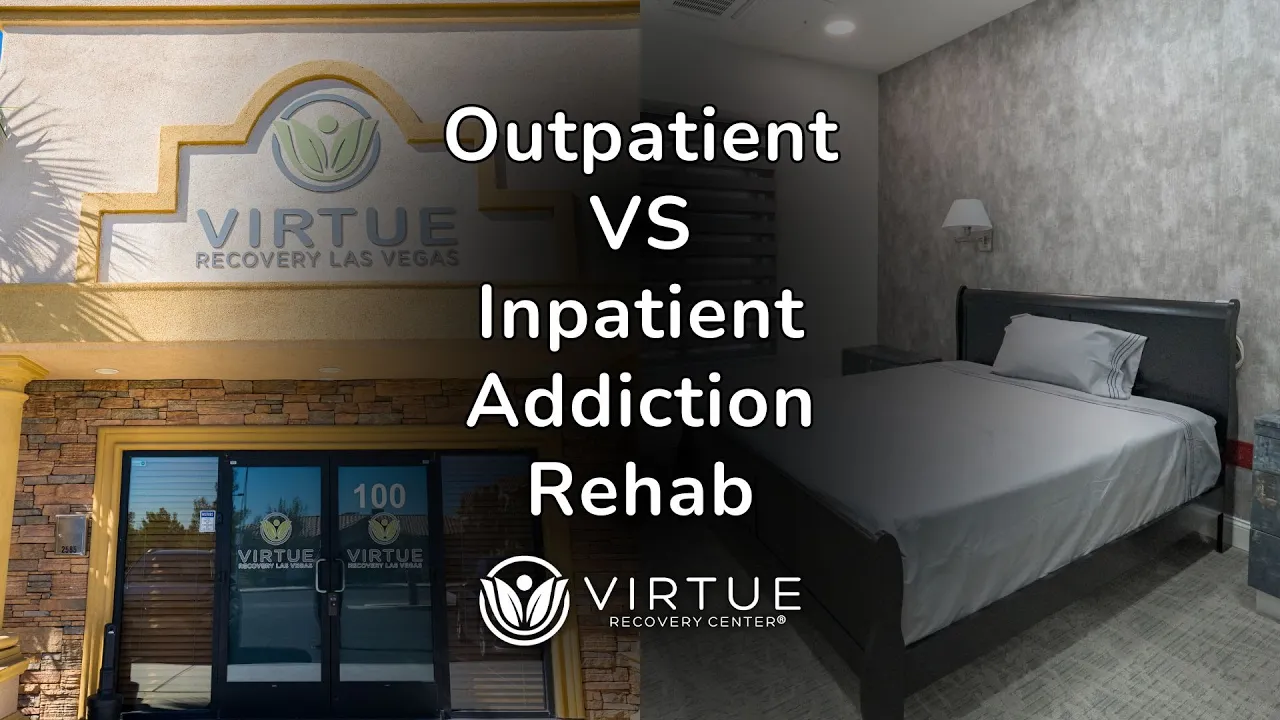
What to Expect in Our Outpatient Treatment Program
Outpatient rehab at Virtue Recovery Las Vegas includes individual, group, and family therapy sessions. Individual therapy is designed to provide an environment that will help you gain insight into your addiction and any underlying issues. Many of those who struggle with addiction also struggle with co-occurring mental health concerns like anxiety or depression. Individual therapy is an effective way to address these issues and create a plan of action to prevent relapse.
Group therapy can be incredibly helpful in recovery. It’s a place where you can learn from and support one another. It also serves as a safe space to practice social skills in a supportive environment.
Family therapy is important for clients who have family members and loved ones affected by their addiction. This type of therapy focuses on open communication, healing relationships, and developing a supportive environment.
Ultimately, our outpatient program is designed to provide you with the tools and strategies needed to stay sober in the real world.
How Does Outpatient Addiction Treatment Help?
Outpatient addiction treatment provides individuals with the tools and support needed to overcome addiction while balancing their daily responsibilities. By offering flexibility, outpatient programs ensure that recovery is accessible to those who cannot commit to residential treatment.
Through one-on-one therapy sessions, group counseling, and family therapy, clients address the root causes of addiction and develop healthier coping mechanisms. Programs also include education on relapse prevention and stress management, which are vital for maintaining long-term sobriety.
Outpatient treatment focuses on integrating recovery into everyday life, helping clients rebuild relationships, regain independence, and improve their mental and physical health. It offers a supportive environment where individuals can connect with peers, share experiences, and receive encouragement throughout their recovery journey.
What is an Intensive Outpatient Program (IOP) for Addiction Treatment?
An Intensive Outpatient Program (IOP) is a highly structured form of outpatient care designed for individuals who need more support than a standard outpatient program but do not require 24/7 supervision. IOPs typically involve attending therapy sessions for several hours a day, multiple days a week, allowing clients to maintain their daily commitments while focusing on recovery.
IOPs provide evidence-based therapies like Cognitive Behavioral Therapy (CBT), group counseling, and family therapy. They address addiction’s underlying causes while teaching essential life skills and relapse prevention strategies. Clients learn to identify triggers, develop coping mechanisms, and build a solid foundation for lasting sobriety.
IOPs are often used as a step-down from inpatient or residential treatment, providing a seamless transition back into daily life while maintaining a strong focus on recovery. This program is ideal for individuals with a stable home environment who are motivated to recover and have access to a reliable support system.
What is a Partial Hospitalization Program (PHP) for Addiction Treatment?
A Partial Hospitalization Program (PHP) is an intensive level of care for individuals with addiction or co-occurring mental health disorders. PHPs provide a highly structured schedule of therapies, counseling, and medical care, typically lasting several hours a day, five to seven days a week.
Clients in a PHP receive a full spectrum of services, including individual therapy, group counseling, medication management, and holistic treatments like yoga and mindfulness. This program is ideal for those transitioning from inpatient care or those who need a higher level of support than an IOP can offer.
PHPs allow individuals to return home or to a sober living environment each evening, providing the benefits of intensive care while maintaining some independence. This balance helps clients practice real-world coping skills in a supportive, structured environment.
What’s the Difference Between IOP and PHP?
The main difference between an Intensive Outpatient Program (IOP) and a Partial Hospitalization Program (PHP) is the level of care and time commitment. PHPs require more hours of therapy and medical care per week, making them more intensive than IOPs.
PHPs are often used as a step-down from inpatient care, providing daily structure and support for individuals with significant addiction or mental health challenges. IOPs, on the other hand, are designed for those who need flexibility and less intensive care, allowing them to balance work, school, or family obligations.
Both programs focus on evidence-based therapies, skill-building, and relapse prevention, but the choice between the two depends on the individual’s needs and stage of recovery.
Why Get Outpatient Addiction Treatment at Virtue Recovery Las Vegas?
Virtue Recovery Las Vegas offers an exceptional outpatient addiction treatment program designed to meet the unique needs of every client. Our highly trained team uses evidence-based therapies combined with holistic approaches like mindfulness, fitness, and nutrition to address the whole person—mind, body, and spirit.
Clients benefit from private, personalized care in a luxurious setting, complete with comfortable facilities, chef-prepared meals, and a low staff-to-client ratio. We also provide flexible scheduling options, including evening hours, to accommodate work, school, or family commitments.
Our outpatient programs include IOP and PHP options, ensuring clients receive the appropriate level of care for their recovery journey. Whether you’re stepping down from inpatient treatment or starting your recovery in an outpatient setting, Virtue Recovery Las Vegas offers the support and resources you need for lasting sobriety.
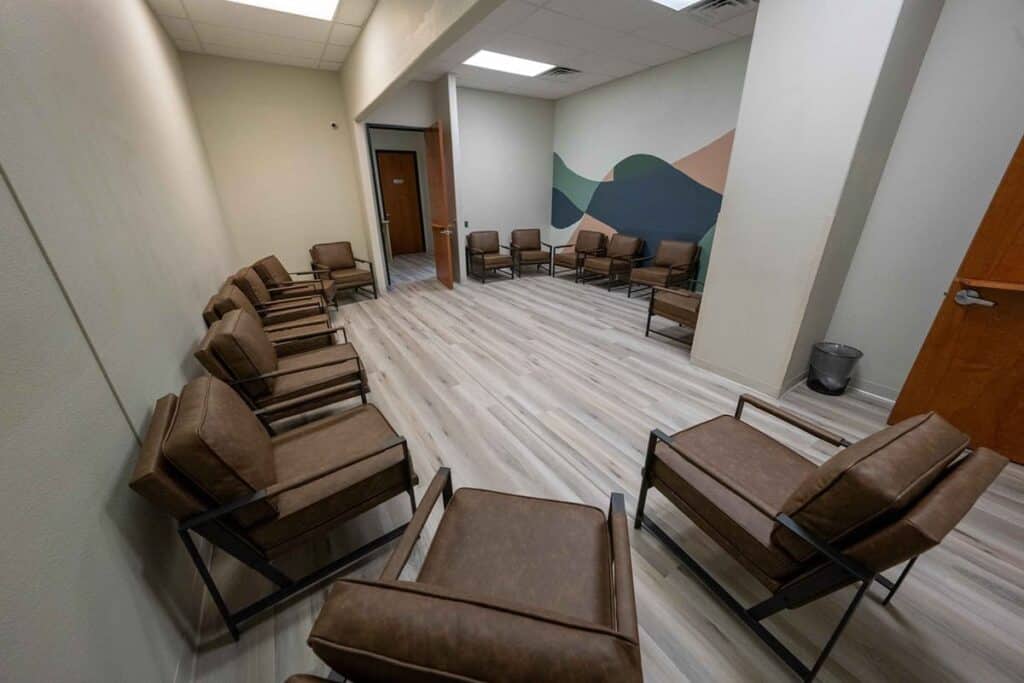
Outpatient Services Center
Montessouri Outpatient
Flexible outpatient care with daily life balance, offering structured therapy and support. Offering IOP, PHP, and aftercare with flexible hours from 8am to 8pm to suit your busy schedule.
🏢 Address: 2585 Montessouri St # 100, Las Vegas, NV 89117
🕓 Hours: Open 8am to 8pm
Flexibility
Tailor treatment to fit your schedule, allowing you to maintain work and family commitments while receiving care.
Community Connection
Stay connected to your support network at home, enhancing your recovery journey with familiar surroundings.
Continued Care
Ideal for transitioning from more intensive treatment, supporting long-term recovery with structured outpatient services.
Explore Our Outpatient Las Vegas (Montessouri) Facility

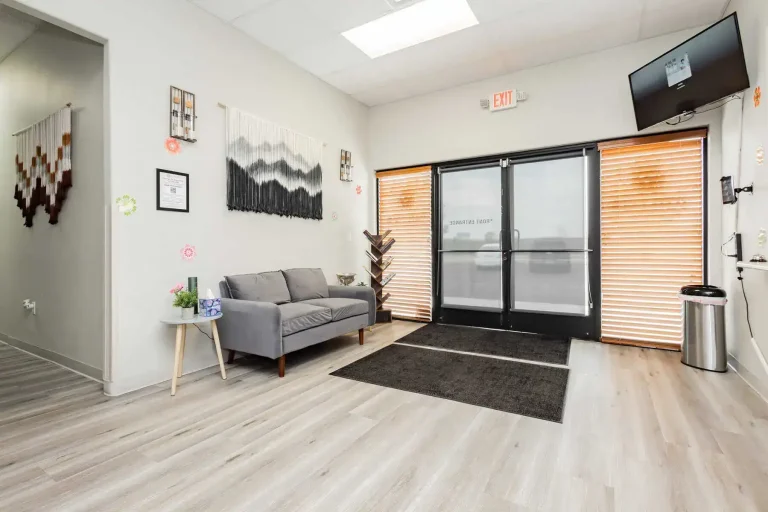
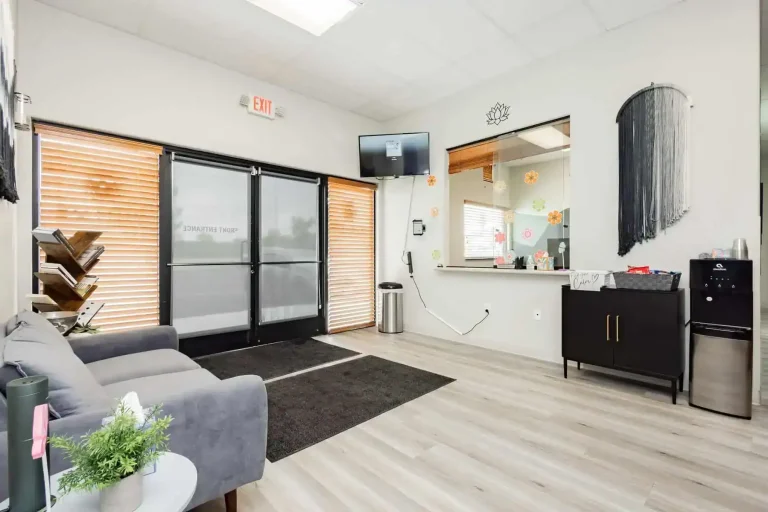
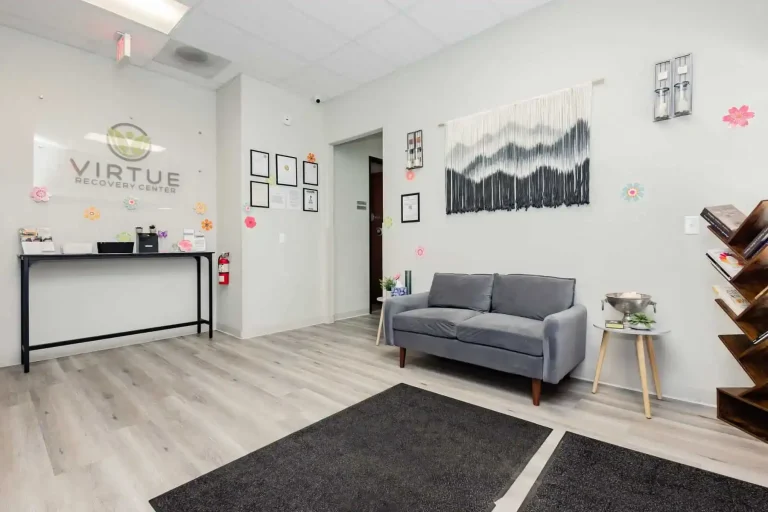
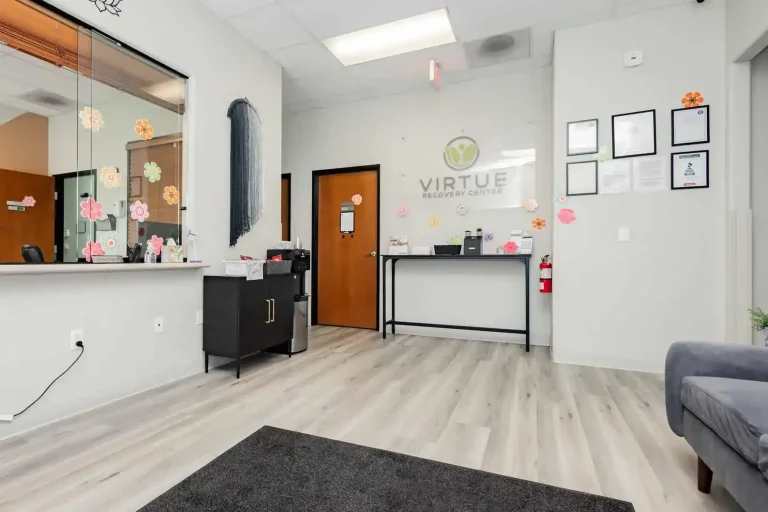
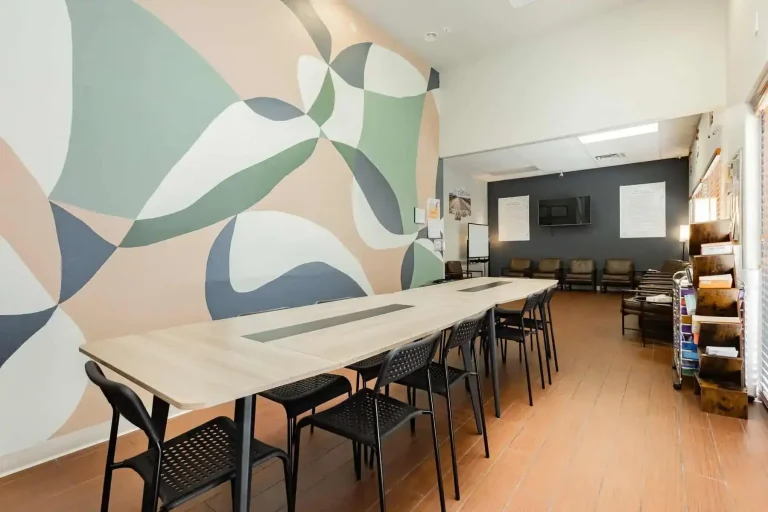
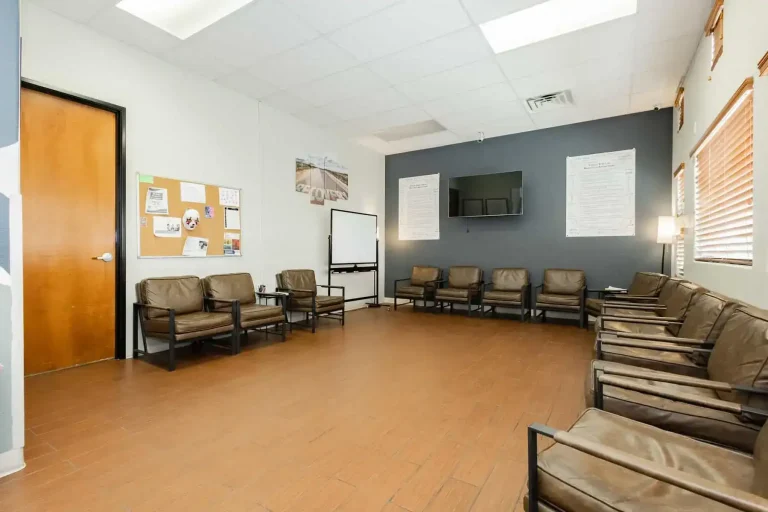
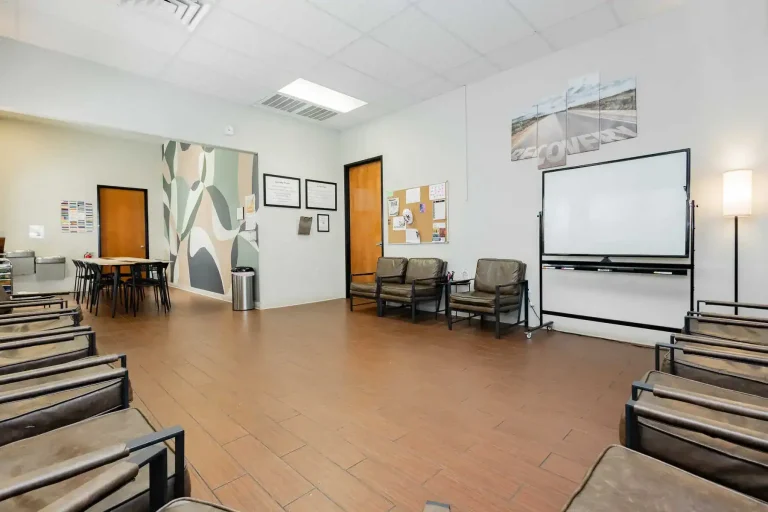
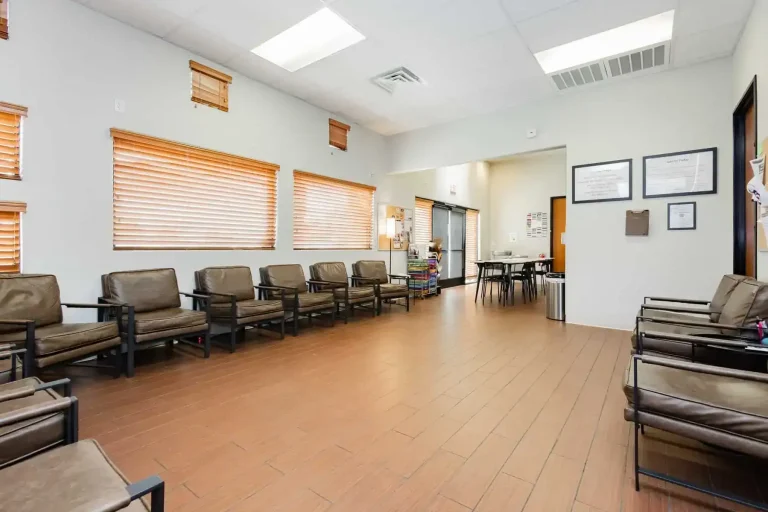
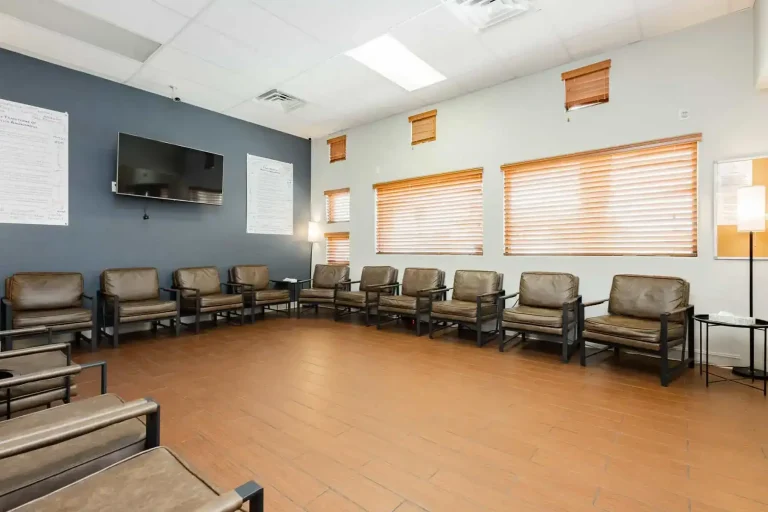
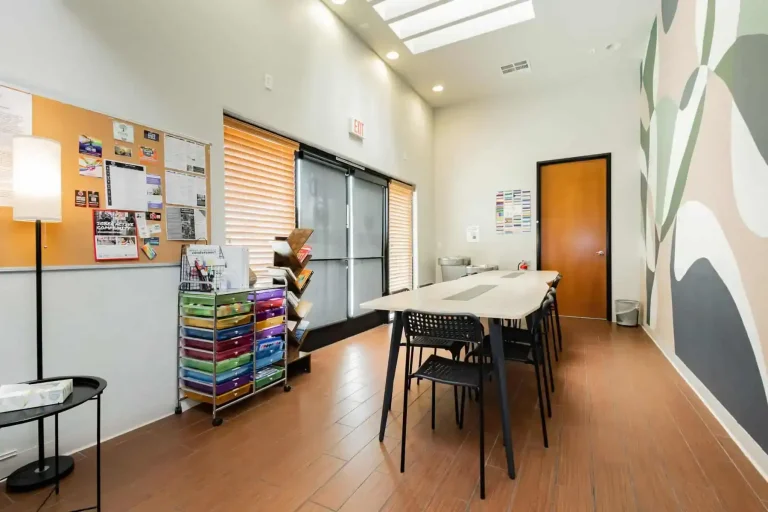
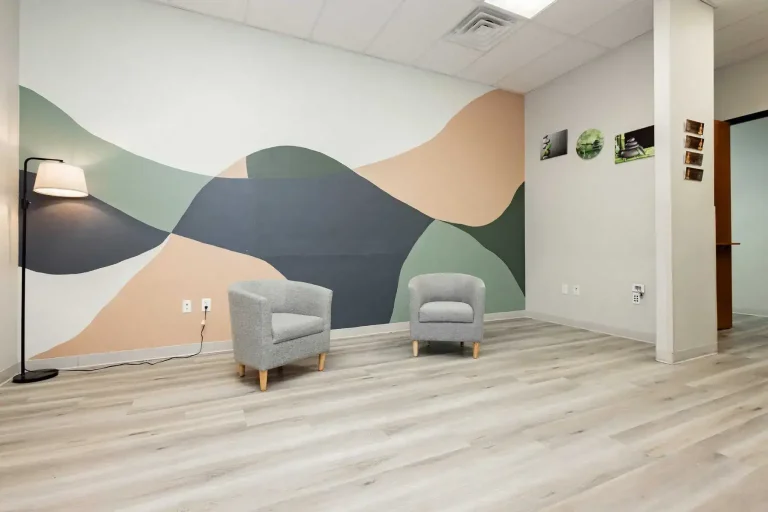
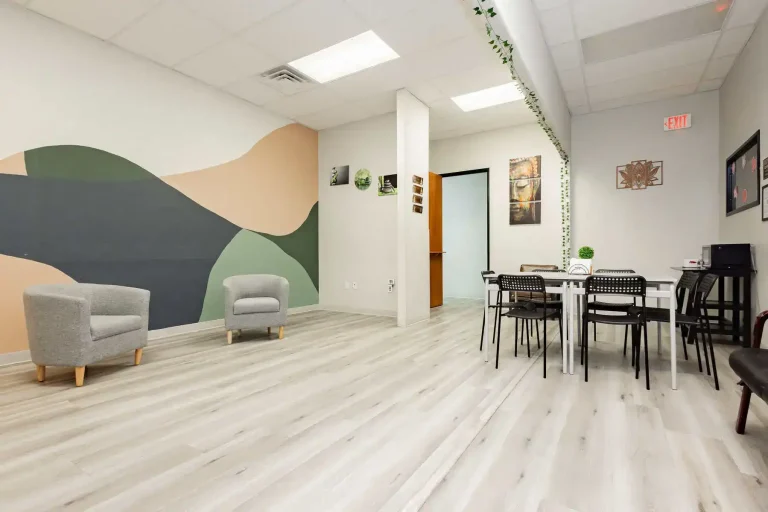
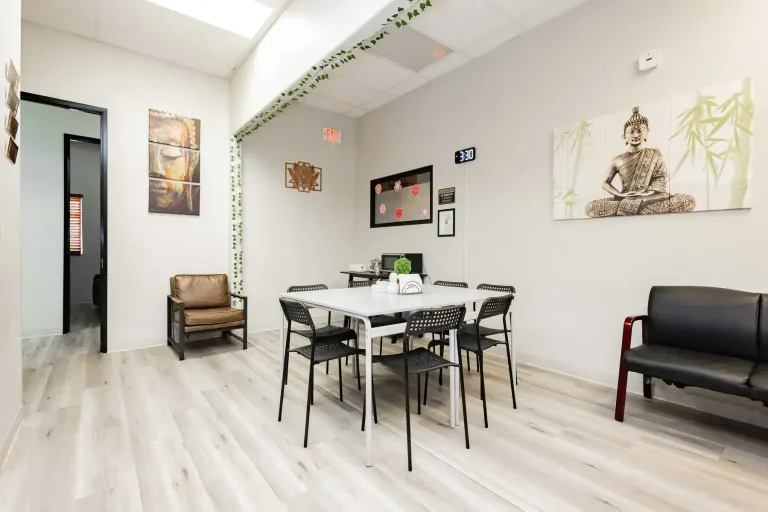
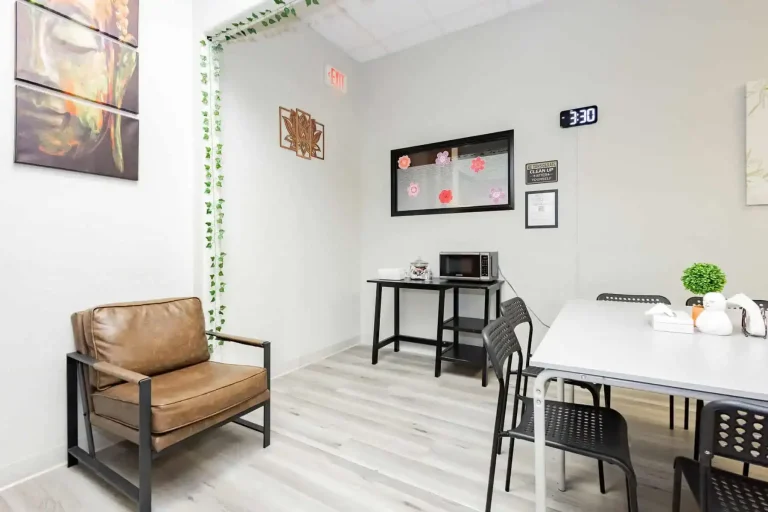
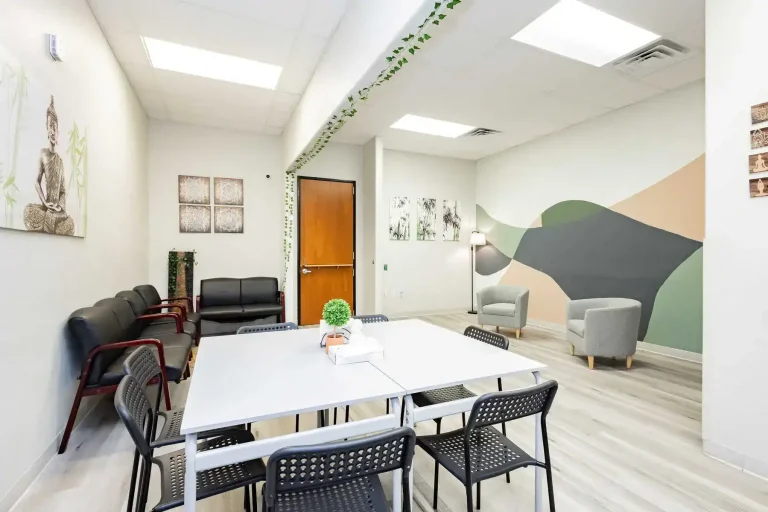
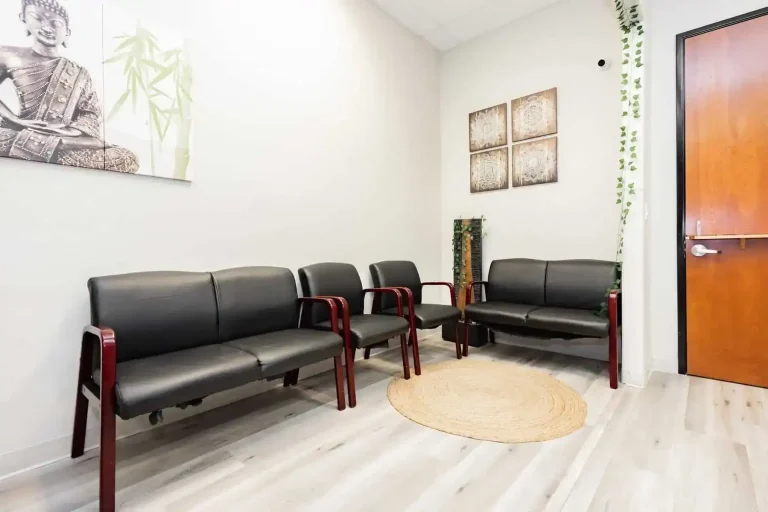
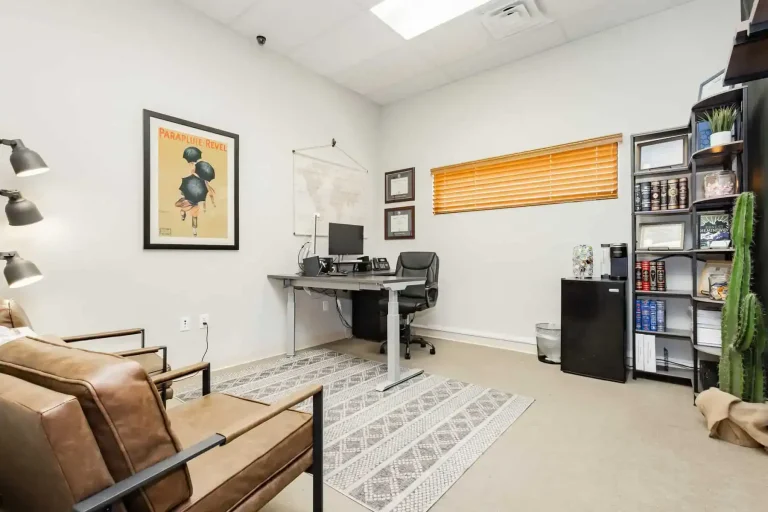
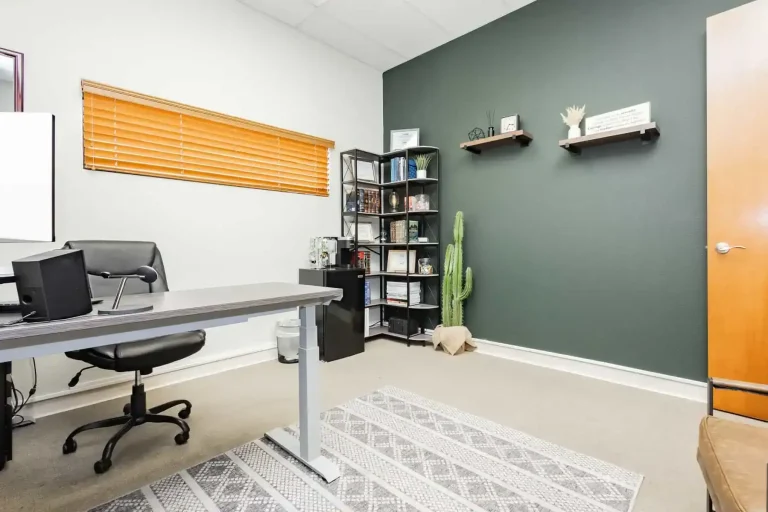
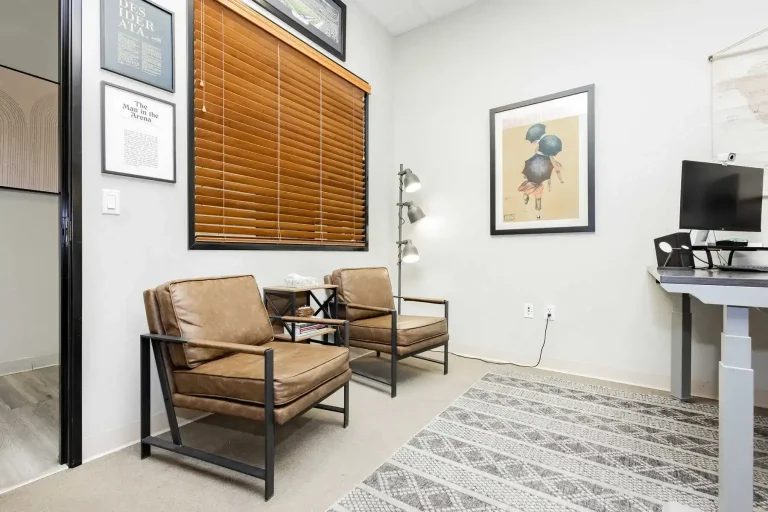
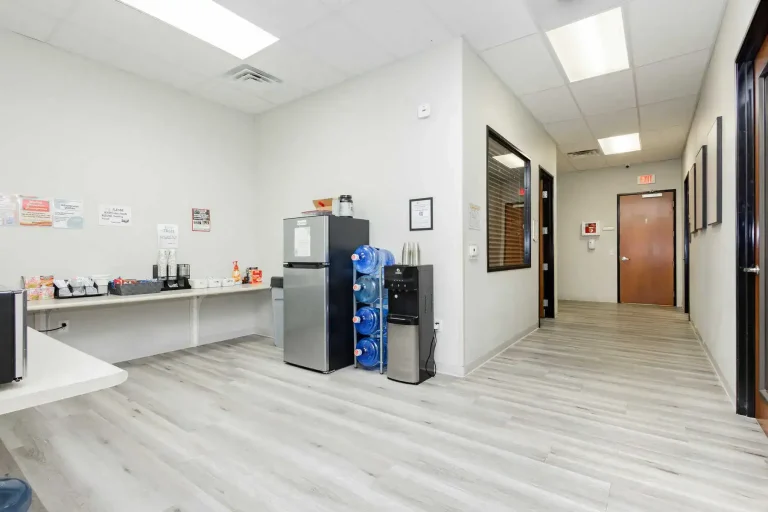
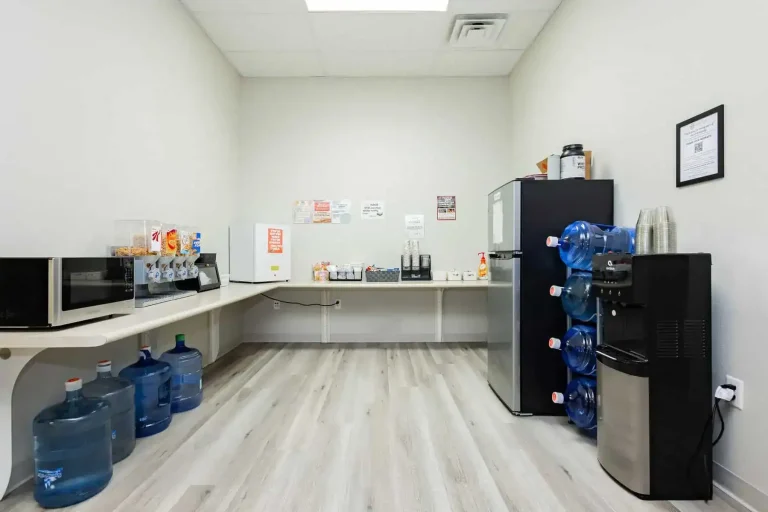
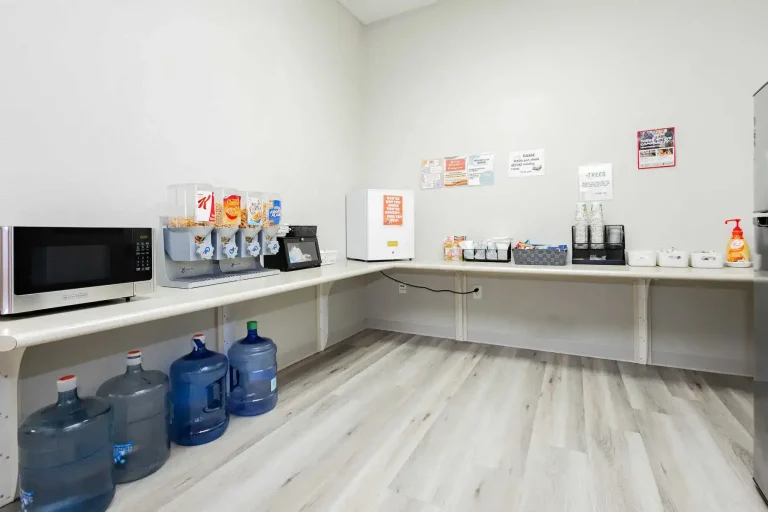
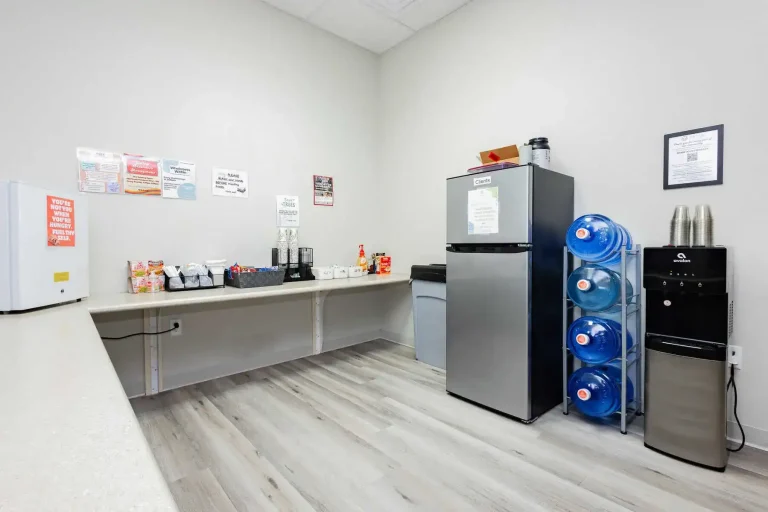
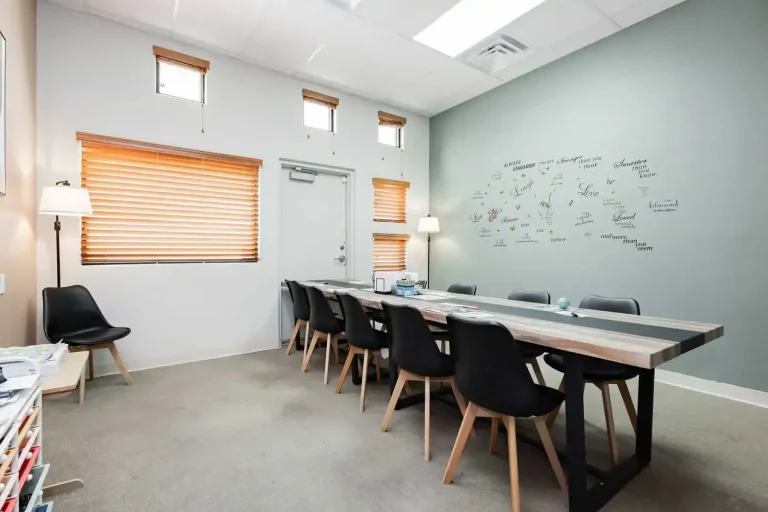
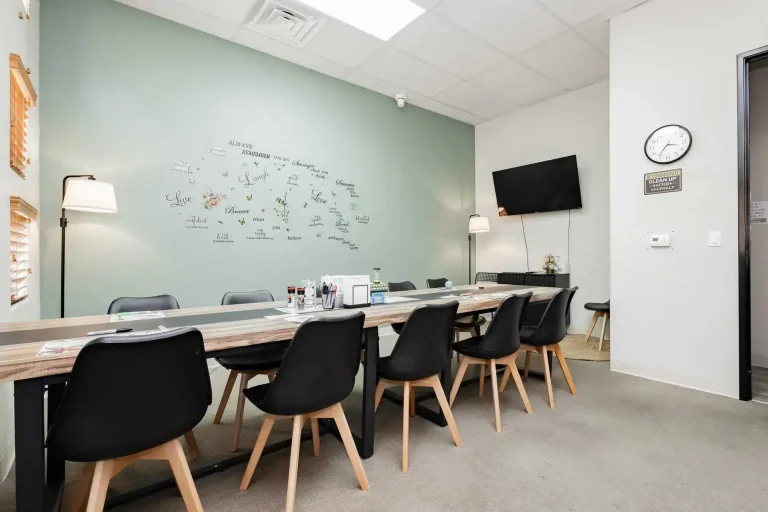
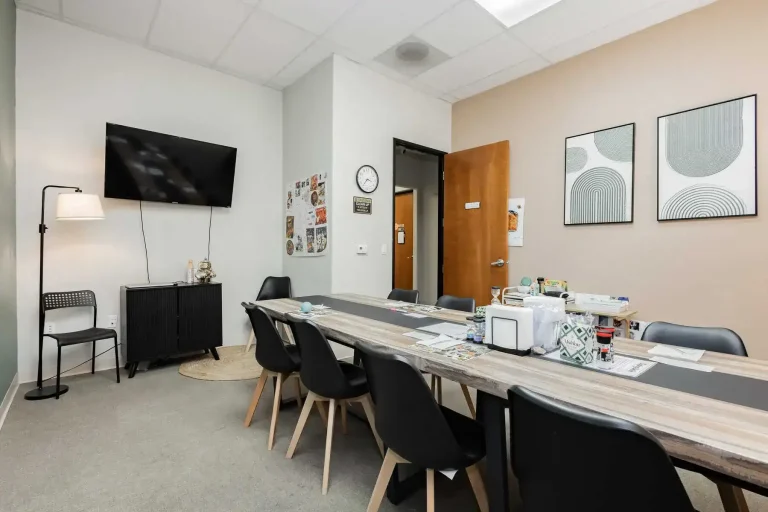
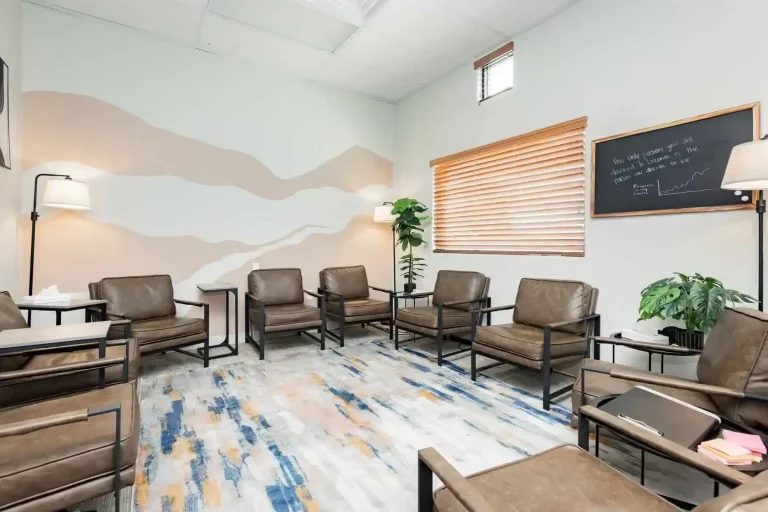
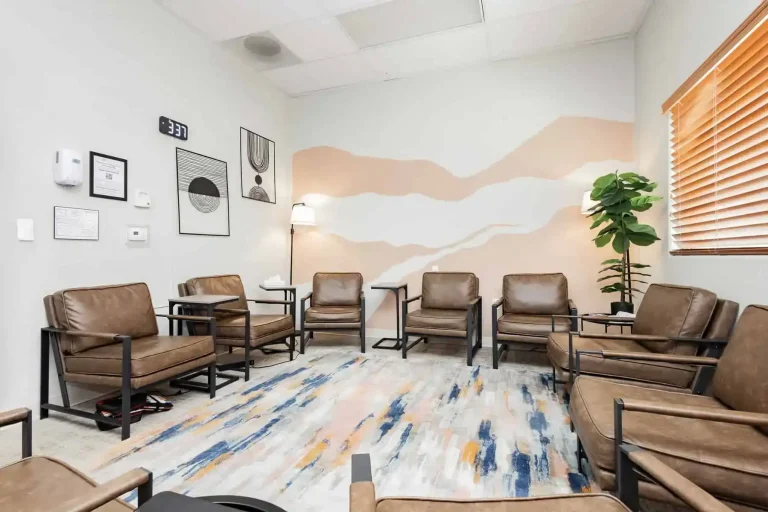
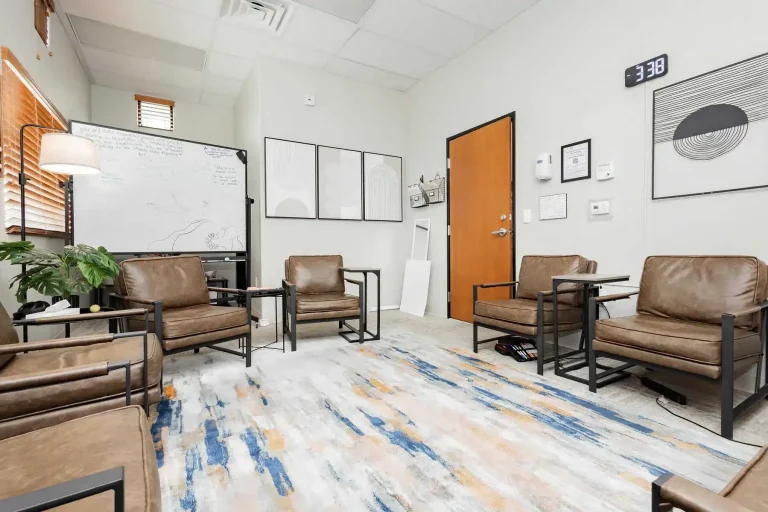
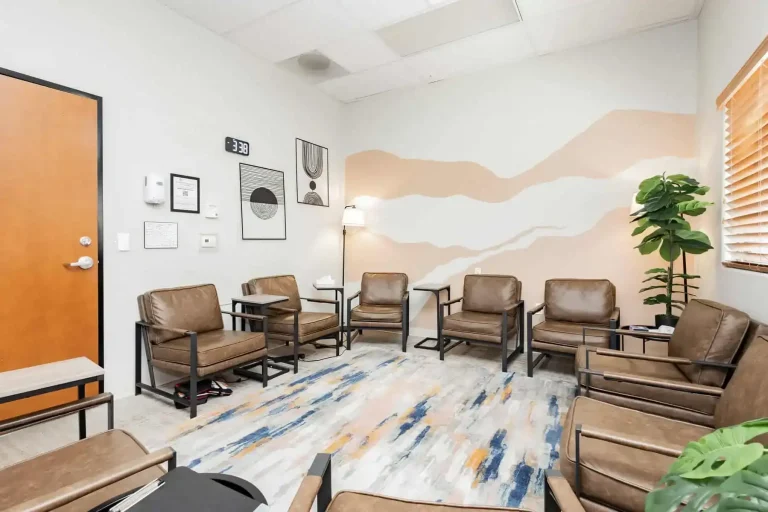
Take a virtual tour of our Montessouri location in Las Vegas, conveniently located near Sahara and Rainbow. This outpatient clinic is designed to provide a supportive and professional environment for individuals participating in our Partial Hospitalization (PHP) and Intensive Outpatient Programs (IOP). Explore our thoughtfully arranged group therapy rooms where connection and healing happen daily, along with private therapy spaces dedicated to individualized care. While clients return home after each session, our facility ensures every moment spent here promotes growth, comfort, and recovery. Begin your journey with a glimpse into the compassionate care that defines Virtue Recovery Center.
Call Virtue Recovery Las Vegas Today
Reach out to our team at 866.520.2861 or connect with us online today to get started on your journey to recovery.
FAQs About Virtue Recovery Las Vegas Outpatient Treatment
Our outpatient program combines evidence-based therapies, holistic therapies, and flexible scheduling to ensure personalized, high-quality care.
Yes, we offer extended hours, including evening sessions, to accommodate clients with work, school, or family responsibilities.
The time commitment depends on the level of care, with IOP clients attending 9–15 hours per week and PHP clients attending up to 30 hours.
Yes, our flexible outpatient programs are designed to allow clients to maintain their daily commitments while focusing on recovery.
Yes, our outpatient programs are designed to provide continued support for clients transitioning from inpatient or residential care.
Yes, we address co-occurring mental health conditions like anxiety or depression alongside addiction in our outpatient programs.
Yes, group therapy is a key component, providing peer support, shared experiences, and a sense of community.
Yes, we use trauma-informed care to address the root causes of addiction, including past trauma.
Yes, we provide inclusive and supportive group therapy for LGBTQ+ individuals in recovery.
Glossary of Terms for Outpatient Addiction Treatment
Outpatient Treatment
A flexible addiction treatment option that allows clients to live at home while attending scheduled therapy sessions, counseling, and support groups.
Intensive Outpatient Program (IOP)
A structured outpatient program offers a higher level of care. Clients attend therapy sessions several times a week for several hours daily.
Partial Hospitalization Program (PHP)
An intensive treatment program where clients receive comprehensive therapy and medical support during the day but return home or to a sober living environment at night.
Individual Therapy
One-on-one counseling sessions between a client and a therapist to address personal challenges, trauma, and the underlying causes of addiction.
Group Therapy
Therapeutic sessions that bring clients together to share experiences, provide mutual support, and learn from one another in a structured setting.
Family Therapy
A counseling approach that includes family members to repair relationships, improve communication, and build a supportive home environment for recovery.
Relapse Prevention
Strategies and tools are taught to help clients recognize triggers, manage cravings, and maintain sobriety after treatment.
Triggers
Internal or external cues—such as stress, emotions, or environments—can lead to cravings or relapse if not effectively managed.
Dual Diagnosis
A treatment approach that simultaneously addresses substance use disorders and co-occurring mental health conditions like anxiety or depression.
Holistic Treatment
A comprehensive approach to recovery that incorporates physical, mental, and emotional well-being through therapies like mindfulness, yoga, and fitness.
Medication-Assisted Treatment (MAT)
The use of FDA-approved medications to help manage cravings and withdrawal symptoms, combined with behavioral therapy.
Evidence-Based Therapy
Therapeutic approaches, such as Cognitive Behavioral Therapy (CBT), are scientifically proven to be effective in treating addiction and mental health disorders.
Aftercare
Ongoing support is provided after completing a treatment program, including therapy, alumni programs, and resources to prevent relapse.


